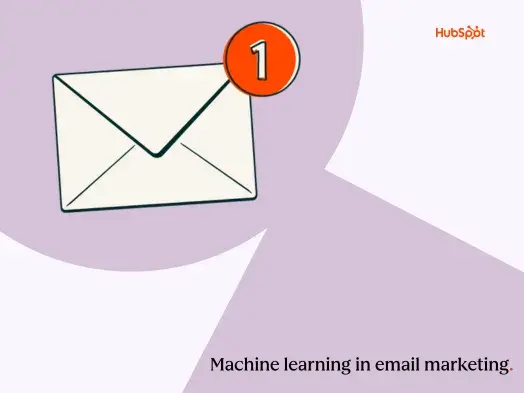But as AI is poised to become a bigger part of that media ecosystem, we don’t yet have similar signposts to help guide that journey.
Is it time for AI to get its own rating system?
OpenAI Partners with Common Sense Media
In late January, OpenAI –the company behind leading AI tools like ChatGPT and Dall-E– announced a curious collaboration.
They would be joining forces with Common Sense Media– a nonprofit that reviews and rates media according to its suitability for children.
If you’ve heard of Common Sense, it’s probably from their reviews of movies, TV, and books.
But this time, the partnership is not about bringing the power of AI to the nonprofit’s mission. Instead, it’s about bringing Common Sense’s mission to AI.
A press release for the partnership identified two main goals:
- The creation of AI guidelines and education materials
- The curation of family-friendly GPTs
But, more interestingly, the collaboration seems to signal that OpenAI isn’t pushing back against Common Sense’s new AI ratings.
Ratings which include reviews that aren’t always kind to OpenAI’s products.
An AI Rating System
Last September, Common Sense Media received $3 million from Craig Newmark Philanthropies – a cybersecurity grantmaking org created by the founder of Craigslist.
The goal of the funding was to launch a rating system that Common Sense describes as “nutrition labels for AI.”
(So you can see your %DV of GPT.)
In rating these tools, reviewers consider the following categories:
- Privacy
- Trust
- Transparency & Accountability
- Kids’ Safety
However, they also cover principles that are harder to define, such as social connection, fairness, promotion of learning, and a “people first” focus.
For those principles, reviewers are asked to consider questions like, “Does the product respect human rights and children's rights, as well as identity, integrity, and human dignity?” and “Does it support human agency with human-in-the-loop and adults (parents, caregivers, educators)-in-the-loop frameworks?”
Consumers can then click into each category to dig deeper into the rating and understand how the AI tool earned it.

"Our guides and curation will be designed to educate families and educators about safe, responsible use of [AI], so that we can collectively avoid any unintended consequences of this emerging technology," explained James P. Steyer, founder and CEO of Common Sense Media.
And in that goal, Common Sense has pulled no punches– even where OpenAI is concerned.
What’s in it for OpenAI?
As OpenAI faces growing scrutiny from both consumers and governments, it’s tempting to dismiss the collaboration as a way to make AI products more appealing to the public.
In a statement, OpenAI’s CEO, Sam Altman, seemed to lean this way."AI offers incredible benefits for families and teens, and our partnership with Common Sense will further strengthen our safety work, ensuring that families and teens can use our tools with confidence," Altman said.
Yet, surprisingly, OpenAI’s products aren’t highly rated on the platform.
Common Sense Media’s AI Review Team – made up of tech execs and researchers – scored ChatGPT only a 3 out of 5.
The attached review calls the frontier LLM “a powerful, at times risky chatbot for people 13+ that is best used for creativity, not facts.”

Meanwhile, Dall-E 2 earns only a 2-star rating, due in part to “a tendency toward objectification and sexualization.”
That review goes on to call out the image-generating AI as “susceptible to generating outputs that perpetuate harmful stereotypes, especially regarding race and gender.”
On the flipside, the collaboration also includes measures that could lend legitimacy to OpenAI.
Such as a plan for family-friendly GPTs within the GPT Store – a move that could be seen by some as an endorsement of OpenAI by Common Sense.
The new category will guide families and teens toward age-appropriate AI products, according to Common Sense Media’s criteria.
That means the partnership starts with the assumption that at least some GPTs will be found kid-safe and appropriate.
The Road to AI Literacy
Relationship woes aside, the partnership will also include the creation of guidelines and education materials to help parents, educators and young folks navigate AI.
These materials will aim to teach AI literacy for both children and adults, a discussion that often falls through the cracks.
Think about the last time you read an article about AI and children.
Chances are, it revolved around something like using ChatGPT to cheat on an essay. It’s much harder to find articles about, say, how to help children use AI safely and responsibly.
Now consider that 58% of 12- to 18-year old students report having used ChatGPT, compared to just 30% of parents, according to a poll by Common Sense.
But just like the MPA film ratings, these AI teachings, reviews, and ratings aren’t meant to be the end of the conversation. Instead, they’re signposts to help you explore further than you might be able to on your own.
In the end, it’s up to parents to decide what’s safe and what’s a horror show.
Artificial Intelligence








-1-20250905-2237709%202.webp)

![I tested the top 14 AI chatbots for marketers [data, prompts, use cases]](https://53.fs1.hubspotusercontent-na1.net/hubfs/53/best-ai-chatbot_1.webp)
%20NEW%202025.webp)